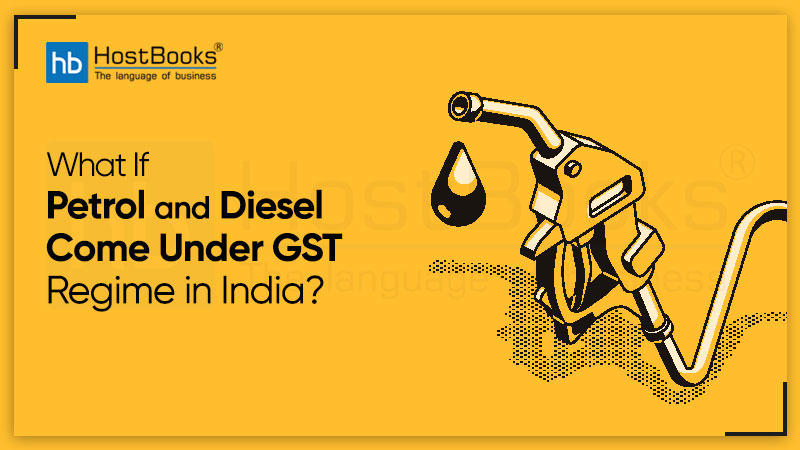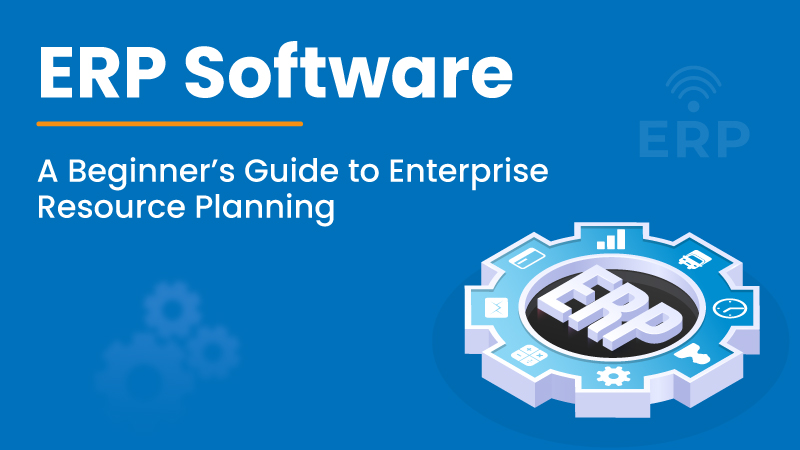What If Petrol and Diesel Come Under GST Regime in India?

There is no denying the fact that today petrol and diesel prices have broken all past records and breached the ₹100 marks in several parts of the country. These sharp hikes in the prices are pinching the pocket of the common man. Everyone mulls why the prices are getting higher day by day. Even our Finance Minister Nirmala Sitharaman also shows concern on this and attributes the rapid rise in fuel prices to ‘Dharm Sankat’, or ‘Divine Predicament’.
According to some experts, reason behind the ruinously high cost of gasoline may be an exclusion of this item from the GST regime. Due to which every state impose different VAT on petrol and diesel. The result – we seek price variations in each state. Perhaps if it comes under GST regime, we can get a relief of higher rates and resolve this problem. Because after that government can impose a fixed percentage (highest 28% not more than that) on the fuel. Also this will make the prices of petrol and diesel uniform across the country. But it’s not as simple as seems.
What Are The Difficulties To Bring Fuels Under GST?
First, we understand the concept of GST. GST or Goods and Services Tax is an indirect tax that replace taxes (indirect) in India like state tax or VAT, Centre tax or excise duty, etc. This act was passed on 29th March 2017 in the Parliament and came into effect on 1st July 2017. But there are certain items that are not covered under GST such as Petrol, Diesel and Alcohol. The reason is; these items contribute a remarkable amount of revenue to the states and center.
VAT is Value Added Tax that is imposed by the state government on items to earn state revenue. Now the problem is every state applies VAT as per their own requirements and the people of that state have to pay it.
For instance, Punjab imposes approx. 33.40% taxes on petrol and 19.77% on diesel. Whereas, approximately VAT percentage in Chandigarh on petrol is 22.45 %.
In Maharashtra, VAT on petrol is 26% + Rs.10/Ltr, VAT on diesel 24% + Rs.3/ltr and Maharashtra earns estimated revenue of ₹25,000 crores annually.
Similarly, in Haryana VAT on fuel products is 26.25% and as per few sources, recently Haryana Government decided to increase this percentage. It means there is a possibility to see a hike in petroleum prices.
As per a reliable report, Maharashtra has the highest VAT on petroleum and hence earns the maximum from fuel selling however Andaman & Nicobar has the minimum VAT at 6% on petrol & diesel and hence earns the minimum. On the other hand, the central government also earns a significant amount by levying taxes on petroleum products.
It clearly indicates that petrol and diesel contribute hugely in collecting revenue for states and centre government. So, if petroleum is brought under GST regime, both (centre and state) the taxes would be merged and prices would be uniform across the country.
So, these are the difficulties to bring fuel items under the GST regime. Well, in between the discussion of higher fuel prices, Finance Minister Nirmala Sitharaman specified that the state and union government both have to work together to bring the prices to economic prices.
What will be the consequences If Petrol & Diesel Come Under GST Regime?
If government will bring petrol & diesel under GST, there is a high possibility that we see a significant fall in the prices. Additionally, petroleum will sell at the uniform prices in every part of India. Isn’t it acool option? Additionally, the SBI Economists believe that we can buy the petrol at ₹ 75 a litre and diesel at to ₹ 75 a litre across the country if they come under GST.
But somewhere there is possibility, if government will bring them under GST, they surely apply the maximum percentage, i.e. 28% on it to compensate the revenue loss. Also, there cess will also applicable on that. At the end, we will find only ₹4-5 a litre fall in the prices.
Still, many states are ready to bring the petrol and diesel under the GST regime opposite to the perception that they are against the concrete proposal which involves the compensation mechanism through the centre.
Kerala FM Thomas Isaac stated that the problem of high fuel pricing can be addressed to bring it under GST. Also, he announced “Compensate us for the tax shortfall arising on account of subsuming fuel under GST. We are ready. Let this be discussed in the Council meeting. But compensation has to be worked out in conjunction with states,”
West Bengal FM Amit Mitra says the union might not be interested to take amendments as it earns “Much More” from taxes on petrol and diesel. He also added that cesses accounted for 70% of the central taxes on petrol at present and these were not distributed through the method of devolution.
Another side of coin; if petrol & diesel come under GST, definitely it would be a big relief to the people of states that impose heavy VAT on petroleum but what about those states people that impose very little VAT? Certainly, it will impact their life a lot. It can enhance the transport expenses and put a burden on them. Additionally, Centre and state both government will face a big reduction in tax collection.
Do You Know How Much Tax You Pay On Your Fuel?
You will be surprised to know that the basic price of oil is only Rs.26.34/L (As per the report of Petroleum Planning and Analysis Cell). The rest is taxes, excise duty, etc. You have to pay different taxes on fuel that are:
- Raw oil tax
- Refinery tax
- Excise Duty (imposed by center Govt.)
- Dealer Commission
- VAT (imposed by State Govt.)
- Road Development Cess (imposed by State and Center Govt.)
- Other Cess (imposed by State and Center Govt.)
Let’s understand it with an example:
In Delhi, the base price of diesel is Rs 27.08. The commission of dealer on diesel in Delhi is 2.53 rupees per litre. Then centre Govt. adds 31.83 rupees per litre as excise duty. State Govt. adds 10.64 rupees per litre as VAT on diesel. This way the total tax on diesel in Delhi is more than 59%.
Similarly, the Centre charges Rs. 32.98 (125 per cent of the base price) as excise and the Delhi government levies Rs. 19 (72 % of the base price) per litre on petrol VAT.
India has the highest taxes on fuel in the world!!! Have a look:
- India – 69%
- Italy – 64%
- France – 63%
- Germany – 63%
- Britain – 62%
- Spain – 53%
- Japan – 47%
- Canada – 33%
- USA – 19%
Source: Petroleum Planning & Analysis Cell, IOC
Conclusion
As per a reliable report, to earn the present profit on fuel items, Government has to take approximately 280% of tax that is impossible. So, the better solution is first Government seek other ways to earn money. They introduce new schemes that help in collecting good revenue. But applying more taxes on essential items will lead to suffering common men.
Another way to address this challenge; government can create an oil price stabilization fund. This fund will be used in the tough time to compensate the revenue loss by cross subsidizing fund saved from good time without hurting the common man.
Other than that, economists suggested a graded and advanced subsidy should be given to poor consumers which can be gradually lessened over a period.

Try HostBooks
SuperApp Today
Create a free account to get access and start
creating something amazing right now!
















